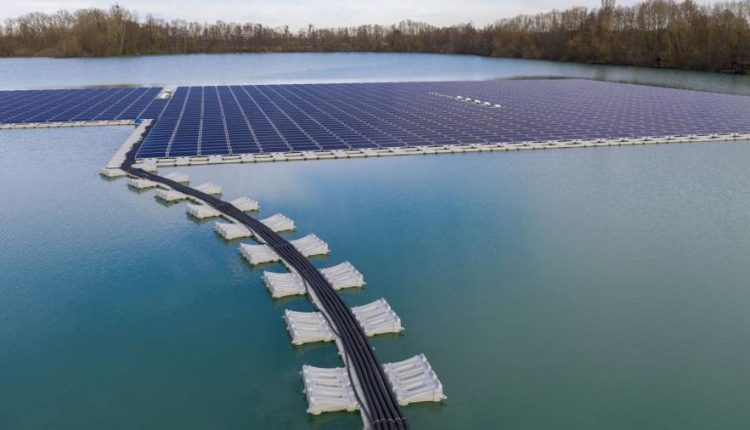Receive free Climate change updates
We’ll send you a myFT Daily Digest email rounding up the latest Climate change news every morning.
EU lawmakers have voted to increase the bloc’s share of renewable energy to more than 40 per cent by 2030 and to loosen permitting procedures, just as its solar and wind power groups warn they are at risk of insolvency.
The European parliament’s vote on Tuesday to increase the share of renewable power in the EU’s energy mix from a 30 per cent target to 42.5 per cent by 2030 comes against the backdrop of a global push to accelerate clean power.
The day before, however, European solar module manufacturers said they faced bankruptcy as a result of “fierce competition” from Chinese companies that benefit from vast state subsidies and cheap labour.
The EU agreement on the new target was only reached after last-minute concessions were made to France and eastern European countries on nuclear power, which is low carbon but produces radioactive waste.
The outcome was met with applause after almost three-quarters of lawmakers voted in favour of the rules, despite opposition from some rightwing politicians. Several French lawmakers abstained.
The legislation also said that national authorities should only take up to two years to approve renewables projects by allowing them to be recognised as having an overriding public interest and by simplifying permitting procedures.
Kadri Simson, the EU’s energy commissioner, said the upgraded target was “the right signal to attract the massive investment required” and that “the new permitting [procedures] will be a game-changer for renewable deployment”.
About 130GW of renewable energy projects — equivalent to about 120bn cubic metres of gas — are awaiting approval in the EU, according to the European Commission.
At the weekend, leaders of the G20 economies, which are responsible for about 80 per cent of greenhouse gas emissions, agreed to a goal of tripling renewable energy capacity by 2030 during a difficult summit, where they simultaneously failed to set a timeline for the end of fossil fuel use.
Brussels proposed that it would improve its renewable energy targets after its gas supply from Russia was steadily cut off by Moscow following the full-scale invasion of Ukraine.
But final approval was held up after France made a late push for better recognition of nuclear power, which makes up about three-quarters of its energy mix.
Ultimately, small concessions on the production of ammonia from nuclear energy were secured. However, the hold-up by Paris forms part of a broader trend of member states seeking carve-outs from climate laws that affect their individual energy mixes.
Germany secured greater allowances for so-called e-fuels for cars in rules to phase out the combustion engine by 2035, while Poland is suing the European Commission over a series of regulations that it argues threaten its energy security.
The renewables directive is part of the EU’s Green Deal climate law, which aims to position the bloc as a leader in environmental regulations. But since its announcement in 2019, the EU has fallen behind in the global race for clean technology as it tries to compete with huge subsidies in China and the US.
“We need to be a little bit careful in the EU,” said Markus Pieper, a German lawmaker who led negotiations on the renewables law. “We have 24 per cent renewables in the energy mix, twice as much as worldwide, but the EU last year only . . . installed half the wind turbine capacity compared to the global average.”
He also called for an “import strategy” for green hydrogen as he acknowledged that the EU would not be able to produce all of its own clean energy domestically.
The EU’s renewables law, which also sets out criteria for hydrogen production, has proved controversial among environmental campaigners for giving allowances for the burning of biomass for energy.
“Burning scarce and valuable wood and other primary biomass sources risks EU climate and nature targets,” said Elise Attal, head of EU policy at Principles for Responsible Investment, a UN-backed agency.
A future revision of the renewable energy rules, which policymakers are already working on, “exclude tax benefits or other support for using biomass for heating and power generation”, she said.
Read the full article here

